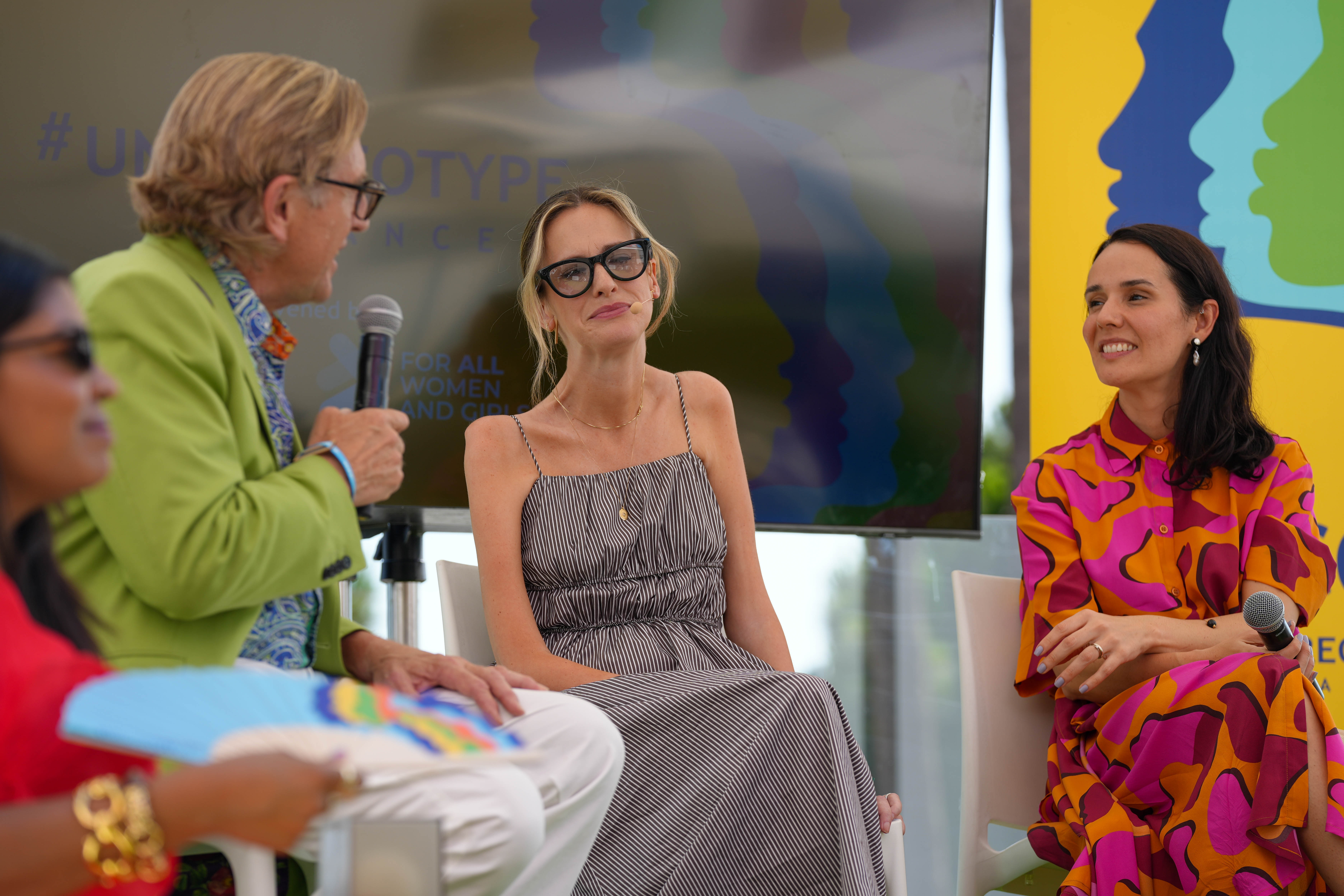Further findings from Kantar’s Brand Inclusion Index research found that 75% of consumers globally say that a brand’s diversity and inclusion reputation influence their purchase decisions and 40% of consumers would stop using brands that do not promote inclusion.
New research, conducted by the WFA found that 82% of global marketers and senior policy leads agree (strongly agree, agree or somewhat agree) that budgets and campaigns are under heavier scrutiny than a year ago. The business case for inclusion, therefore, couldn’t be more timely.
Against the backdrop of increasing financial pressure, Creative Equals’ Ali Hanan asked “imagine if I told you there was a MAGIC piece of tech that could give you 3% short term sales uplift…16.4% sales up lift over 18 months AND increase your brand power by 54%? Would you buy it?”
A resounding “yes” could be heard along the Croisette. “That is the power of inclusive marketing” she continued, making the convincing argument that inclusive advertising is an approach that brands and advertisers cannot afford to ignore.
At a discussion hosted by UK National Chapter ally WACL supporting its ‘Change the stats campaign’ the panelists shared data points and multiple examples that showcase the power of inclusive campaigns in building brand growth, consumer trust and ultimately, better commercial outcomes for brands.
Chloe Davies, Founder of It Takes A Village, also noted during a CMO Brunch hosted by Black At that many companies are reframing inclusive advertising as a growth driver and essential strategy for reaching broader audiences. This shift represents a fundamental change from viewing inclusion as a ’nice to have’, to recognizing it as a competitive advantage.
This sentiment was echoed across the festival: Edelman CEO Richard Edelman emphasized that purpose-driven marketing hasn't disappeared—it's become more personal, with consumers seeking brands that serve their lives, families, and futures.


